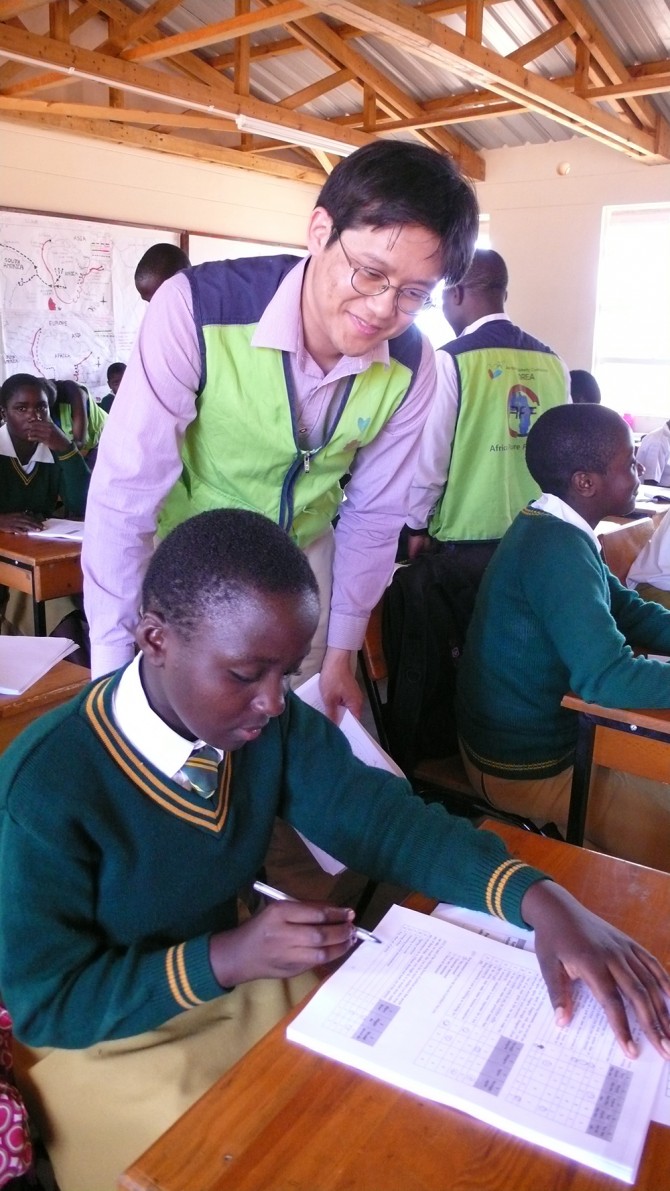Education improves economic rationality, study finds
By Stephen D'Angelo
There has been sustained interest across behavioral and social sciences – including psychology, economics and education – in whether people are born to be rational decision-makers or if rationality can be enhanced through education.
Hyuncheol Bryant Kim, assistant professor of policy analysis and management, set out to answer this question and found that education can be leveraged to help enhance an individual’s economic decision-making quality or economic rationality. Kim's findings are detailed in a study published Oct. 4 in Science.
“Using a randomized controlled trial of education support and laboratory experiments that mimic real-life examples, we established causal evidence that an education intervention increases not only educational outcomes but also economic rationality in terms of measuring how consistently people make decisions to seek their economic goals.” Kim said.
Kim and his colleagues examined this hypothesis by participating in a randomized controlled trial of education support in Malawi, arranged by a nongovernmental organization, which provided financial support for education in a sample of nearly 3,000 female ninth and 10th graders.
The researchers conducted a long-term follow-up survey that measured educational outcomes and decision-making quality. Through financially incentivized laboratory experiments, the researchers evaluated consistency with utility maximization –an individual’s attempt to obtain the greatest value possible from a decision – as the criterion for economic rationality.
“We found that those who took part in the education intervention had higher scores of economic rationality, suggesting that education is a tool for enhancing an individual’s economic decision-making quality,” Kim said. “While we know that schooling has been shown in previous work to have positive effects on a wide range of outcomes, such as income and health, our work provides evidence of potentially additional benefits of education coming from improvements in people’s decision-making abilities.”
Traditional economic analysis assumes that humans make rational choices. However, mounting evidence shows that people tend to make systematic errors in judgment and decision-making and that there is a high level of diversity in how rational individuals are.
Kim points out that most other research on improving the quality of decision-making target the reduction of decision biases in particular contexts of economic activities. For example, behavioral economists have urged governments and policymakers to intervene in markets and the context within which a decision is made, without restraining people’s freedom of choice.
A popular idea representing this position in behavioral economics is the so-called “nudges” proposed by Nobel laureate Richard Thaler. Nudges are a means of helping people make better choices that are often tailored to behavior in particular economic contexts.
“We take a different stand: Proper policy tools can enhance general capabilities of decision making,” Kim said. “Education can better equip people for high-quality decision-making for their lives.”
Kim says this is something policymakers can leverage to improve lives around the world.
“Governments must never neglect investments in human capital of their citizens,” he said, noting that Malawi is ranked one of the lowest in the world in human capital - the economic value of citizens. “In addition, this evidence provides an additional rationale for investment in education in resource constrained settings such as Malawi and other developing nations.”
Stephen D’Angelo is assistant director of communications at the College of Human Ecology.
Media Contact
Get Cornell news delivered right to your inbox.
Subscribe

